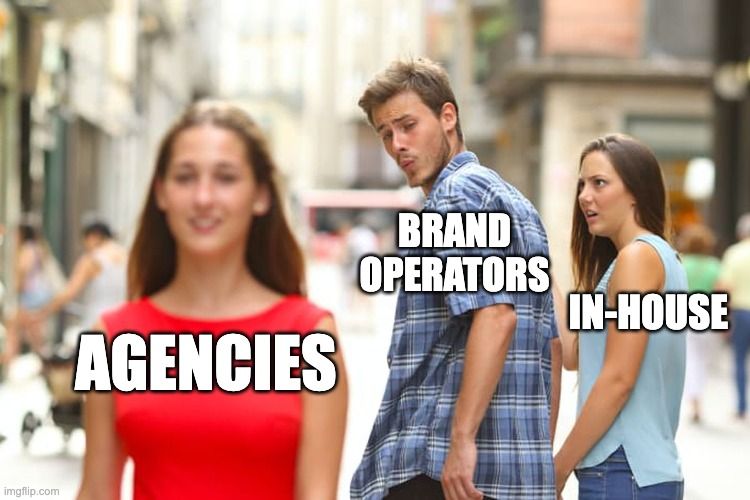I wrote this on LinkedIn, but (duplicate content be darned), I wanted to share it on our main ZATO blog as well. This came from continued ponderings with my industry friend, Mike Ryan, of SMEC after some thoughts by Byron Tassoni-Resch about Google's stock issues after their YouTube earnings were missed. Details on that thread here:
It made me think of a post I had written two years ago (47 years in digital speak), and I wanted to share it again here as well as some additional thoughts. The post was originally posted on Search Engine Journal: When Ad Platforms Control the Auction, Return, Data… & Now the Cookie (Oct 2020)
Here are my additional thoughts as we ponder this together.
🚘 An analogy for those who don't know Google ad buying: PPC is like if you went to a car secret auction where nobody knew what any car cost and our bids were all private...
oh and also, the auctioneer owns the cars and it's the only place to buy a car within 500 miles (!!)
👦🏻 I tell the auctioneer: "I have $20K to spend, but I want that specific car. Can you tell me what I will pay?
🚘 The auctioneer, furtively glancing around: "Uhhh... sure.... uh that other guy told me $19,890." He gestures at a person walking by. "But, well I like you so I'll let you have it for $19,891!"
👦🏻 I cheer: "Hooray!!! I had the budget! What a relief, and right where I needed it to be in cost!"
You looking at me with concern: "...uhhh... bro..."
This is a goofy analogy because we would never buy a car in this setting. Like, all of us would distrust the guy.
But Google has built a $70B business around this exact model.
❓ How are the bids set?
❓ Are there bid floors?
❓ If so, what are they and what are they based on?
❓ How can I determine if everything is above board?
In the old days (like, 5-10 years ago) data received back from the auctions mainly solved this. Part of the accepted transparency for media buyers is that we could *see* what search terms we had bid on. We could *see* what % of our spend was in YouTube on what audience. There were still concerns, but reported data was a huge part of the ecosystem of trust... not just simply because we could take action on it. That difference is crucial (and one Google doesn't seem to understand).
With campaign types like PMax (this started at SSC), Google continued to remove the ability to verify what an advertiser is bidding on.
Now we're just throwing $20K at the auctioneer and being handed a car. Any car!
🚘 "Hope you like it, no refunds!"
We're (probably? likely? who knows?) entering a recession where everyone is feeling squeezed. Google has had the chance for years to be more transparent & they've run in literally the opposite direction and I have to wonder if regulation is coming hard for them because of this. Rather than move towards transparency, they have run in the opposite direction and they have failed to understand the advertiser push back.
The fear of "control" by PPCers is about more than self-preservation, it is the need to see into the workings of Google to ensure their money (or clients' money) is being well-spent. It's healthy for us to inquire since we are striving to be good stewards of that money, and why would we ever trust the auctioneer in this scenario I detailed?
Google shouldn't get to push back on the friction that necessary transparency carries with it. Transparency does slow down innovation, but that's part of the ecosystem they've chosen to engage in.
Just some Wednesday thoughts. As always, may the auctions be ever in your favor.
Original post if you want to join the conversation on LinkedIn (let's connect while you're at it!).

.jpg)
.webp)


.jpeg)


.jpg)



